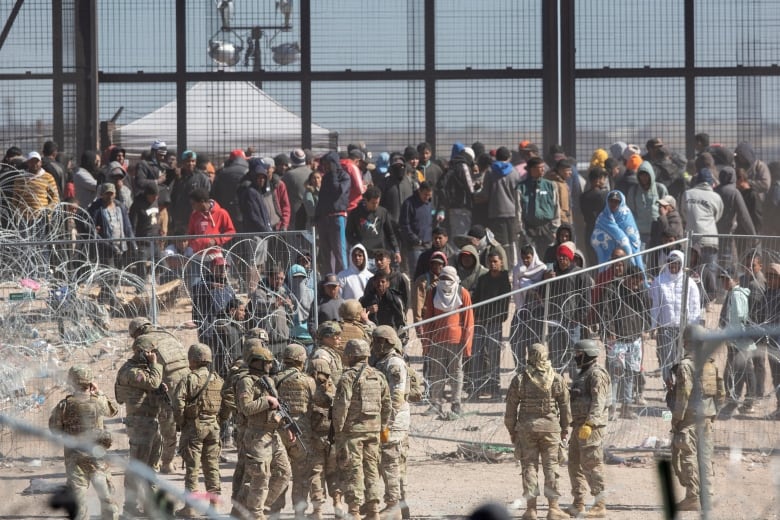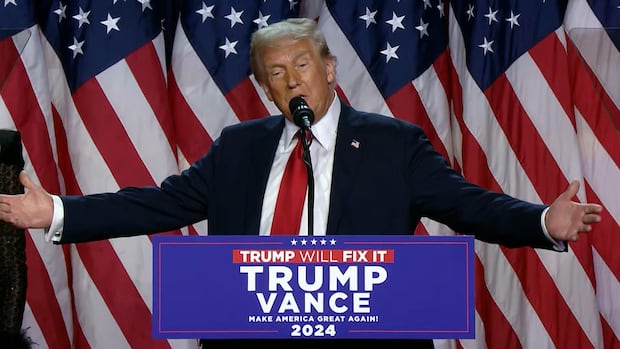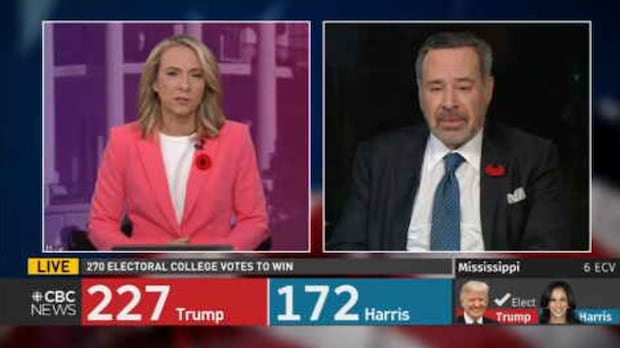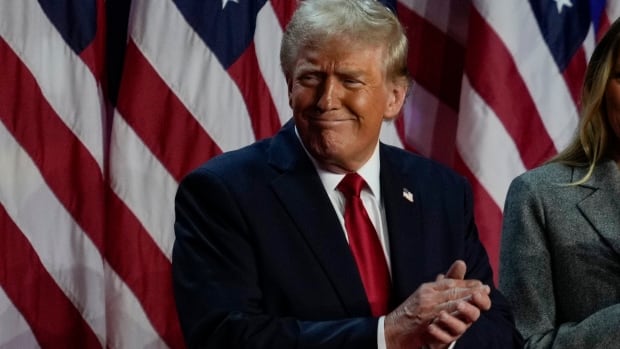
On the campaign trail for the 2024 presidency, Donald Trump threatened a minimum 10 per cent global tariff on all imported products, memorably calling “tariff” the “most beautiful word in the dictionary.”
Now that he’s won a second presidency, Canada and other U.S. trading partners are girding for Trump to put that word into action.
On Tuesday morning, Prime Minister Justin Trudeau congratulated Trump on his victory and noted, “the friendship between Canada and the U.S. is the envy of the world. I know President Trump and I will work together to create more opportunity, prosperity and security for both of our nations.”
But some experts have suggested the promise of a sweeping tariff could result in a devastating five per cent loss in GDP.
For Canadian veterans of the trade battles with the first Trump administration, there is a sense of déja vu.
“Welcome back to an administration that put national security tariffs on the Canadian aluminum that its own military buys to make a point no one understood,” said Flavio Volpe, head of Canada’s auto-parts lobby association, referring to Trump’s move in 2020 to slap a 10 per cent tariff on most Canadian aluminum.
Could Ottawa negotiate an exemption?
Volpe held out hope that Canada’s co-operation with the U.S. to keep out Chinese imports might create common ground between the two countries.
But the big change from Trump’s first term is that he’s now talking about placing tariffs on everything, from everywhere, describing the move as a strategy to force manufacturers to build in the U.S.
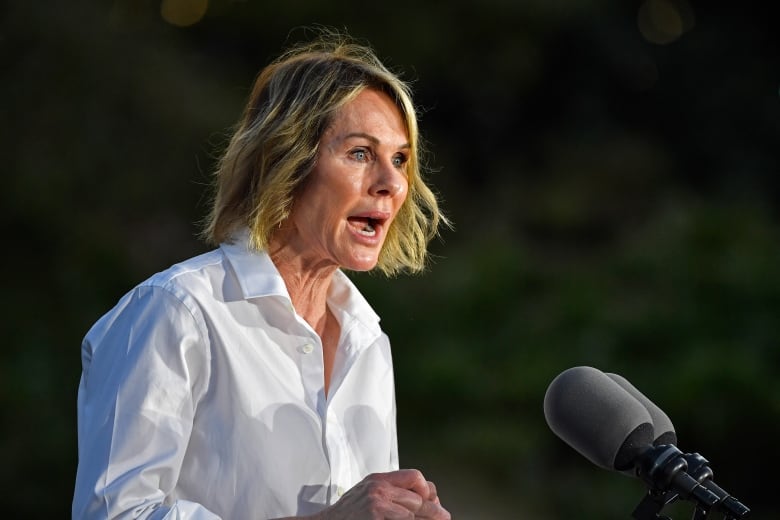
During a rally in Raleigh, N.C., on Monday, Trump threatened Mexico “on Day 1 or even sooner” with a 25 per cent tariff on all goods imported from Mexico unless the country put a stop to the influx of illegal immigrants. He vowed the tariff would rise to 50 per cent and then 75 per cent if that failed to yield results.
Deputy Prime Minister Chrystia Freeland has tried to reassure Canadians worried about the election results that the government had good relationships with both Democrats and Republicans.
Still, with nearly $3.6 billion worth of goods and services flowing across the Canada-U.S. border each day, Trump’s proposal of a minimum 10 per cent global tariff would have significant impact on Canada’s economy.
Republican Donald Trump claims a ‘magnificent victory’ after winning several key battleground states, including Pennsylvania, and tells supporters they are a part of the ‘greatest political movement of all time.’
It’s believed Ottawa will try negotiating an exemption to the tariff, and failing that, will consider trying to dissuade Trump from imposing it, which brings the threat of retaliation from the U.S., which in turn risks plunging Canada into a painful trade war with its southern neighbour.
Canada’s ambassador to Washington mused publicly about the possibility of retaliation from the U.S. if there’s no exemption.
A recent report from TD Economics was more optimistic, saying Trump’s best and most likely use of tariffs would be as a bargaining chip to force Canada into concessions when it comes time to renegotiate CUSMA — the trade agreement between Canada, the U.S. and Mexico — in 2026.
The question of military spending
It’s not just Canadian trade that could be impacted by Trump. He’s also likely to put more pressure on Canada to increase its defence spending — although that’s a measure that enjoys some bipartisan support from both Republicans and Democrats, who say Canada is not living up to its NATO spending commitments.
That commitment includes spending two per cent of national GDP on defence. Canada currently sets aside a sum equivalent to 1.3 per cent of its GDP for the military, but plans to reach 1.76 per cent by the end of the decade.
Elbridge Colby, a senior defence strategist in the last Trump administration and a potentially important player in the next Trump administration, told CBC News this year that he would urge the U.S. to use unprecedented means — such as threatening economic penalties against Canada — as a stick to prod Ottawa to scale up its contribution.
At a rally in South Carolina earlier this year, Trump said the U.S. would not protect allies who fail to meet the two per cent target.
David Frum, staff writer at The Atlantic and a speech writer for former president George W. Bush, believes Donald Trump could ‘mess up’ the Canada-U.S.-Mexico free trade agreement and hold those countries ‘to ransom’ in order to get what he wants. He also suggests Trump could cut of weapons to Ukraine and cost it the war against Russia.
Immigration is another issue that will have implications for Canada. Trump has said that he wants to deal with the estimated 11 million immigrants who are in the U.S. illegally by conducting the largest deportation in American history. That move could cause illegal border crossings into Canada to spike.
“Individuals [may] try to run to Canada to avoid that [deportation],” Christopher Sands, head of the Canada Institute at Washington’s Wilson Center, told CBC News last week. “So we could fight over that.”
Last month, Canada announced cuts to immigration to relieve pressure on the housing market. Trump, in a social media post, wrote that “even Justin Trudeau wants to close Canada’s borders.”
“We are the only ‘stupid ones’ that allow people, including hundreds of thousands of criminals, to freely come into the United States through our ridiculous ‘open borders’ policy,” Trump said.
